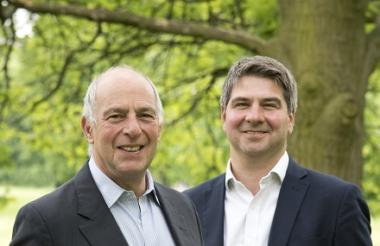Becoming a charity has helped the Royal Parks to become a more attractive organisation to work for, its chair and chief executive have said.
Royal Parks’ chair Loyd Grossman and chief executive Andrew Scattergood spoke to Charity Finance magazine about how the organisation’s first year as a charity has gone, in an interview published this week.
The organisation has only been operating in its current state as a charity for just over a year. The government’s Royal Parks Agency merged with the small Royal Parks Foundation charity to become a separate legal entity in March 2017 before registering as a charity in July last year.
Scattergood said the most surprising change was that the Royal Parks has been able to attract more job applicants as a charity.
He said: “We had long struggled on recruitment and retention for key posts. We were limited on how many staff we could employ. In certain posts, for example IT, we had a series of permanent contractors because we could not get permanent staff.
“So we’ve had a bit more flexibility and we changed our recruitment process. We do not have to recruit through government first, we go out straight to the market, we advertise on all the charity websites, and we are seeing a real shift in the number of applicants.
“I think people want to work for a charity. That’s been a real positive but it is going to take some time because we have many, many posts that were vacant for quite some period, in many cases for years.
“We did lots of market testing about what the right salaries might be, but the recruitment has come without huge increases in salary or anything like that.”
Scattergood said the process of transferring the agency and foundation’s combined 150-or-so staff to the charity was “quite smooth”.
He said there was a risk that employees’ tax status could change, but this was resolved by the charity “remaining neutral from a tax perspective”. He also said recent regulation changes allowed transferring employees to keep their civil service pensions.
Freedom to plan
Grossman said the main difference of become a charity is it has allowed the Royal Parks to “freely and flexibly plan”.
Expanding on this, Scattergood said he now has greater flexibility over spending, as the Royal Parks Agency was required to spend all its income within the financial year.
“We could not put money into the bank to do big, long-term capital projects because we simply weren’t allowed to save money at the end of the year. So the only big practical projects we managed to achieve were Heritage Lottery funded.
“The immediate dramatic change for us was to be able to start to plan our capital projects and ensure the money was spent on the highest priorities rather than just cheap ones at the end of a financial year.
“That felt an immediate huge benefit to us as an organisation and was a huge weight off my shoulders to be honest.”
Subscribers to Charity Finance can read the full interview here.
Related articles











